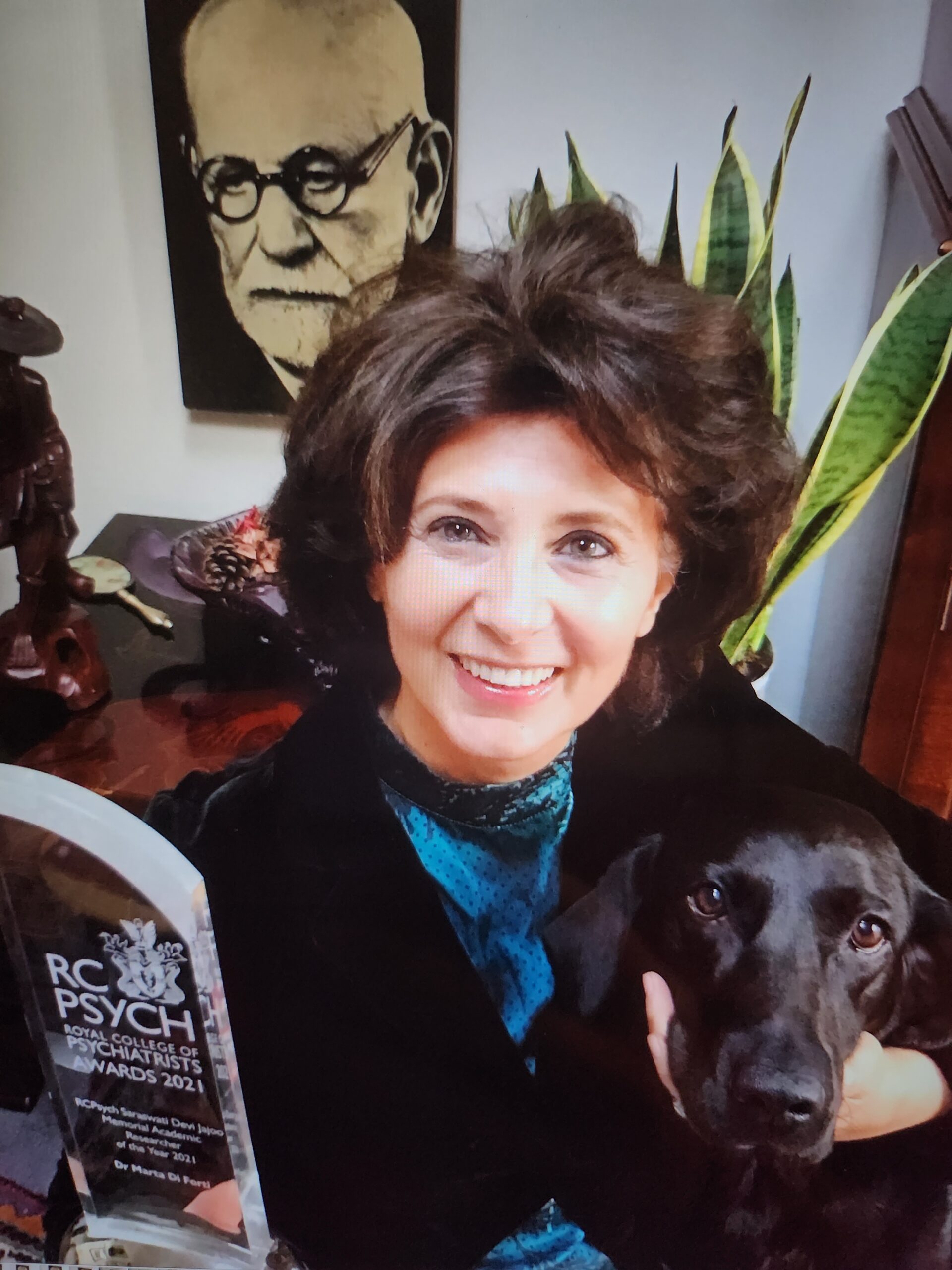Plenary

Mario Alvarez-Jiminez
From Lab to Life: Bridging Evidence and Real-World Impact at Scale in Digital Interventions for Psychosis
Click here to view their bio.
Professor Mario Alvarez-Jimenez is Chief of Orygen Digital, at Orygen and Professor in Digital Mental Health at the Centre for Youth Mental Health, The University of Melbourne. Over the past 15 years, Professor Alvarez-Jimenez has founded and consolidated a large innovation centre (Orygen Digital) harnessing digital technology, human centred design, novel and evidence-based psychological models, implementation and behavioural science and Artificial Intelligence.
Orygen Digital is now a world leading centre dedicated to digitalising and personalising youth mental health care at scale. Orygen Digital integrates >130 researchers and professionals spanning >30 disciplines focused on developing, evaluating and implementing digital interventions that enhance YMH services. Mario is also senior clinical psychologist and continues to work clinically with young people suffering from mental disorders.
Mario’s team has developed multiple world-first digital platforms that leverage online social media, virtual reality and mobile technology, and seamlessly blend technology, AI and human support to address major challenges in youth mental health treatment. This includes the multi-award winning, evidence-based MOST platform now implemented across >400 youth mental health clinics in 5 Australian states and territories and servicing over >10,000 young people with mental ill-health.
Mario has published over ≥223 scientific articles, secured over $158.1M in research and government funding and attained 11 national and international awards.

Marta Di Forti
Cannabis Use and Psychosis: From Risk to Treatment
Click here to view their bio.
Dr. Marta Di Forti is a Professor of Drugs, Genes and Psychosis at the Dept of Social, Developmental and Genetic Research, KCL. She leads the first Cannabis Clinic for patients with Psychotic disorders in UK. In 2021 she awarded the Royal College of Psychiatrist Researcher of the year prize. In 2020 she was granted a MRC Senior Research Fellowship to expand her research in the role of cannabis use in psychosis and its underlying biology. Her MRC SRF employes tecnologies like Virtual Reality, genetic data, DNA Methylation data and perhipheral levels of endocannabinoids from human participants in parallel to runnnig an animal model experiment of pubertal exposure to cannabinoids to investigate biological markers of susceptilibty to psychosis among heavy cannabis users.

Diane Gooding
Predicting Risk, Identifying Precursors, and Characterizing Course: Pathways of Inquiry
Click here to view their bio.
Diane Carol Gooding, Ph.D., is a Professor of Psychology and Psychiatry at the University of Wisconsin-Madison and Affiliate Faculty of the Department of Medicine. A magna cum laude graduate from Harvard & Radcliffe Colleges, she subsequently obtained her Ph.D. in Clinical Psychology from the University of Minnesota. Using patient data, genetic high-risk data, and psychometric data, Dr. Gooding's research has focused on biobehavioral (e.g., oculomotor behavior), cognitive (e.g., thought disorder, working memory), and affective (e.g., social anhedonia) markers and risk factors associated with schizophrenia and schizotypy. She is the primary developer of the ACIPS, a psychometric measure of social/interpersonal pleasure used internationally to detect risk and predict the course for schizophrenia spectrum disorders. She is a Fellow of the Association for Psychological Science (APS) and the American Psychopathological Association (APPA), a member of the International Society for Psychiatric Genetics, and a long-time member of the Society for Research in Psychopathology (SRP). Dr. Gooding is a Deputy Editor for Psychiatry Research and on the editorial board for numerous journals, including Schizophrenia Research and Schizophrenia.

Anthony Grace
Adolescent Stress as a Risk Factor for Schizophrenia: Insight from Animal Models
Click here to view their bio.
Dr. Anthony A. Grace is a Distinguished Professor of Neuroscience and a Professor of Psychiatry and Psychology at the University of Pittsburgh. He has been involved in translational research related to the dopamine system as it relates to the pathophysiology of psychiatric disorders for over 45 years. His early work pioneered the mode of action of antipsychotic drugs and the identification and characterization of dopamine-containing neurons. Currently, Dr. Grace’s work involves the role of stress in pathophysiology, novel treatments for schizophrenia and its prevention, and the role of dopamine in affective disorders. He has published more than 385 articles and is cited more than 60,000 times (H index 119). Dr. Grace has received several awards for his research, including the William K. Warren Award for Excellence in Schizophrenia Research, the Paul Janssen Schizophrenia Research Award and the Lilly Basic Scientist Award from the CINP, the Efron Award and the Axelrod Award from the ACNP, the Gold Medal award from the SOBP, and the Outstanding Basic Research award and Outstanding Translational Research Award from the SIRS. He is also the Editor-in-Chief of the International Journal of Neuropsychopharmacology. Dr. Grace is one of a handful of individuals that not only performs important basic research, but can integrate this work into testable models relevant to the human condition.

Christy Hui
Maintenance Treatment Strategies in Psychotic Disorders
Click here to view their bio.
Dr. Christy Hui Lai-ming is an Associate Professor in the Department of Psychiatry at the University of Hong Kong (HKU). With her academic background rooted in Psychology, she further advanced her knowledge by obtaining a PhD in Psychiatry from the same institution. She has been specialized in psychosis studies, focusing primarily on relapse prevention, medication adherence, cognitive dysfunction, early intervention and long-term outcomes of early psychosis. In addition, Dr. Hui's research expertise extends to the prevention and early intervention in youth and women's mental health.
Dr. Hui has been highly dedicated to clinical and community research. Since 2019, she has been recognized as one of the world's top 1% researchers by citations at HKU by Clarivate Analytics. Dr. Hui is a two-time recipient of the Young Scientist Award at the International Schizophrenia Research Conference - in both 2006 and 2008. In 2012, she was granted the Doris Zimmern HKU-Cambridge Hughes Hall Fellowship, which enabled her to work as a research fellow at the University of Cambridge. She has also published over 260 peer-reviewed articles.
Beyond her academic achievements, Dr. Hui is also committed to raising awareness about psychosis and mental wellness in the community. Since 2007, she has served as Secretary for the Hong Kong Early Psychosis Foundation (EPISO), diligently working to promote local understanding of these critical health issues.

Vikram Patel
A Rights Based Approach to Mental Health Care
Click here to view their bio.
Vikram Patel is the Paul Farmer Professor and Chair of the Department of Global Health and Social Medicine at Harvard Medical School. He also holds honorary Professorships at the Harvard Chan School of Public Health, the London School of Hygiene and Tropical Medicine and the Public Health Foundation of India. He co-leads the Department’s Mental Health for All lab and co-leads the Global Mental Health at Harvard initiative.
His work has focused on the burden of mental health problems across the life course, their association with social disadvantage, and the use of community resources for their prevention and treatment. He is a co-founder of the Movement for Global Mental Health, the Centre for Global Mental Health (at the London School of Hygiene & Tropical Medicine), the Mental Health Innovations Network, and Sangath, an Indian NGO which won the WHO Public Health Champion of India prize and the MacArthur Foundation’s International Prize.
He is a Fellow of the UK's Academy of Medical Sciences and member of the US National Academy of Medicine. He served on the Committee which drafted India’s first National Mental Health Policy and the WHO High Level Independent Commission for Non-Communicable Diseases. He co-led the Lancet Commission on Global Mental Health & Sustainable Development and the Lancet-World Psychiatric Association Commission on Depression. He leads the Lancet Citizens Commission on Reimagining India’s Healthcare System.
He has been awarded the Chalmers Medal (Royal Society of Tropical Medicine and Hygiene, UK); the Sarnat Prize (National Academy of Medicine, USA); the Pardes Humanitarian Prize (the Brain and Behaviour Research Foundation, USA); the Klerman Senior Investigator Prize (the Depression and Bipolar Disorder Alliance, USA); an Honorary OBE (UK Government); and the John Dirk Canada Gairdner Award in Global Health (Canada). He has been awarded Honorary Doctorates from Georgetown University (USA), York University (UK), Stellenbosch University (South Africa) and the University of Amsterdam (Netherlands). He was listed in TIME Magazine’s 100 most influential persons of the year in 2015.

David Ndetei
Kenyan Leadership in Research on Schizophrenia in Africa
Click here to view their bio.
David M. Ndetei is Professor of Psychiatry at the University of Nairobi and the Founding Director of the Africa Institute of Mental and Brain Health, formerly known as the Africa Mental Health Research and Training Foundation. He also serves as the Director of the World Psychiatric Association Collaborating Centre for Research and Training in Kenya.
Professor Ndetei was recently ranked as one of the top two social sciences researchers in Kenya with over 436 academic publications in psychiatry and psychosocial mental health, including 6 books and 21 monographs. Additionally, he is currently editing a book titled "Global Mental Health in Africa: Towards Inclusivity, Innovations, and Opportunities," which features contributions from over 150 global authors, with a focus on African perspectives.
He is dedicated to advancing psychiatric education and training in Kenya. He has mentored numerous graduate and postgraduate students (Masters, PhDs, DScs, Post-docs). He was instrumental in the development of various specialized programs at the Department of Psychiatry, University of Nairobi. He has been a mentor to students from various parts of the world who wanted exposure to community based mental health.
Under his leadership, the Africa Institute of Mental and Brain Health has become a leading center in the region for mental health and brain health research, collaborating with professionals and research from across the globe in many areas ranging from epidemiology, biomarkers in psychosis, dementia, climate change and school mental health.
Prof. Ndetei full CV link: https://afrimeb.org/wp-content/uploads/2025/01/Prof-David-M-Ndetei-Current-CV-Updated-1st-Janurary-2025.doc

Camilo de la Fuente-Sandoval
Psychosis Research in Mexico: Insights from Neuroimaging Studies
Click here to view their bio.
Camilo de la Fuente-Sandoval is actively involved in research, teaching, and university service within the Laboratory of Experimental Psychiatry at the Instituto Nacional de Neurología y Neurocirugía (INNN) in Mexico City. His clinical research focuses on biomarkers in early psychosis, including neuroimaging, electrophysiology, cognition, and inflammation. He has received funding through the National Council for Science and Technology (CONACyT), the UC MEXUS-CONACyT, the National Investigators System, the General Directorate of Health Research Policies (Health Ministry), the Institute of Science and Technology of Mexico City, and the National Institutes of Health.

Raymond Chan
The Weakest Link: Anhedonia Across and Beyond the Schizophrenia Disorders
Click here to view their bio.
Dr. Raymond Chan has been conducting research actively in neuropsychology and mental health, particularly in understanding cognitive deficits in patients with schizophrenia and its underlying psychopathology. Specifically, his research interests include the identification and characterisation of biomarkers or endophenotypes for schizophrenia spectrum disorders, developmental and experimental psychopathology and neurobiology of schizotypy, the cognitive, affective and social cognition deficits in these clinical groups as well as the underlying neural correlates and their normalisation with non-pharmacological interventions.
He is now a Distinguished Professor of Neuropsychology and Applied Cognitive Neuroscience at the Institute of Psychology, the Chinese Academy of Sciences, and holds honorary professorships at the Department of Psychiatry, the University of Hong Kong, and Shanghai Mental Health Centre. He is the elected member of the European Academy of Sciences and Arts (Medicine) and the Fellow for the Association for Psychological Science (Biological Science). He has received the SIRS Global Schizophrenia Award, the Arthur Benton Mid-Career Award from International Neuropsychological Society, the Distinguished Young Scientist Award from the National Natural Science Foundation China, and Young Investigator Award from NARSAD. He is the committee member of the SIRS, the founding and steering committee member of the International Consortium on Schizotypy Research, the foundation committee member of the ENIGMA Schizotypy Working Group, the member of the International Liaison Committee member of the International Neuropsychological Society, and the committee member of the Chinese Psychological Society.

Richard Holt
The Double Burden of Diabetes and Severe Mental Illness
Click here to view their bio.
Richard Holt, MA MB BChir PhD FRCP FHEA, trained at the University of Cambridge and the London Hospital Medical College. He is Professor in Diabetes and Endocrinology at the University of Southampton and an Honorary Consultant Physician in Diabetes and Endocrinology at the University Hospital Southampton NHS Foundation Trust. Professor Holt’s current research interests are broadly focussed around clinical diabetes but specifically encompass studies of the relationship between mental illness and diabetes and, diabetes and pregnancy. His clinical responsibilities include the diabetes and pregnancy clinic, young adult diabetes clinic and the cystic fibrosis related diabetes service.
Professor Holt was the Editor-in-Chief of Diabetic Medicine (2016-2020) and is a past-Chair of the Council of Health Care Professionals of Diabetes UK. Professor Holt was a member of the 2008 NICE diabetes and pregnancy guideline development group and the NICE Type 2 diabetes: preventing the progression from pre-diabetes programme development group. Professor Holt is the Editor-in-Chief of the 5th edition of the Textbook of Diabetes. Professor Holt was the EASD co-chair of the EASD-ADA consensus report of the management of type 1 diabetes in adults.

Soumitra Pathare
Rights of Persons with Severe Mental Illness
Click here to view their bio.
Dr. Soumitra Pathare MD MRCPsych PhD is a Consultant Psychiatrist and Director of Centre for Mental Health Law and Policy at the Indian Law Society, Pune, India. His primary interests are in the areas of mental health policy, scaling up mental health services, rights-based care and legislation. He has provided technical assistance the Ministry of Health and Family Welfare, Government of India in drafting India’s new Mental Health Care Act 2017, which takes a rights-based approach to mental health care and provides for publicly funded universal mental health care. He was also a member of the Mental Health Policy Group appointed by Government of India to draft India’s first National Mental Health Policy released in October 2014. He has served as a WHO consultant in many low and middle-income countries (Botswana, Seychelles, Lesotho, Samoa, Vanuatu, Eritrea) assisting them in drafting and implementing mental health legislation and national mental health policy. He was the Principal Investigator of QualityRights Gujarat project (2014-2016) which implemented the WHO QualityRights program in 6 public mental health facilities in Gujarat.
He is currently involved in scaling up Atmiyata across Mehsana district, Gujarat with a population of 1 million. Atmiyata is a project to improve access to mental health services in rural areas, by training and mentoring women leaders of micro-credit self-help groups to provide basic psychological interventions and access to social benefits for a defined rural population. He is Project Director of SPIRIT Hub (2017-2022) a collaborative initiative of Centre for Mental Health Law and Policy ILS (Pune), TRIMBOS (Netherlands), SNEHA (Chennai) and BCCP (Bangladesh) with the Department of Health and Family Welfare, Government of Gujarat funded by NIMH (USA). SPIRIT is scaling up and evaluating 3 universal suicide prevention interventions in a cluster randomised controlled trial. SPIRIT also has capacity building initiatives to improve implementation research capacity in South Asia as well as the capacity of policy makers to use scientific evidence for policy-making.

Charlene Sunkel
Experts by Experience - Key Partners in Research
Click here to view their bio.
Ms Sunkel is the Founder/ CEO of the Global Mental Health Peer Network (www.gmhpn.org). She is a global mental health advocate with lived experience with schizophrenia. She has published internationally on issues related to mental health and human rights, stigma and the needs of people with mental illness in low- and middle-income countries. Ms Sunkel has been involved in provided technical assistance to national and international mental health related policies, reports and documents. She serves on a number of international boards and committees, and received several national and international awards for her work.

